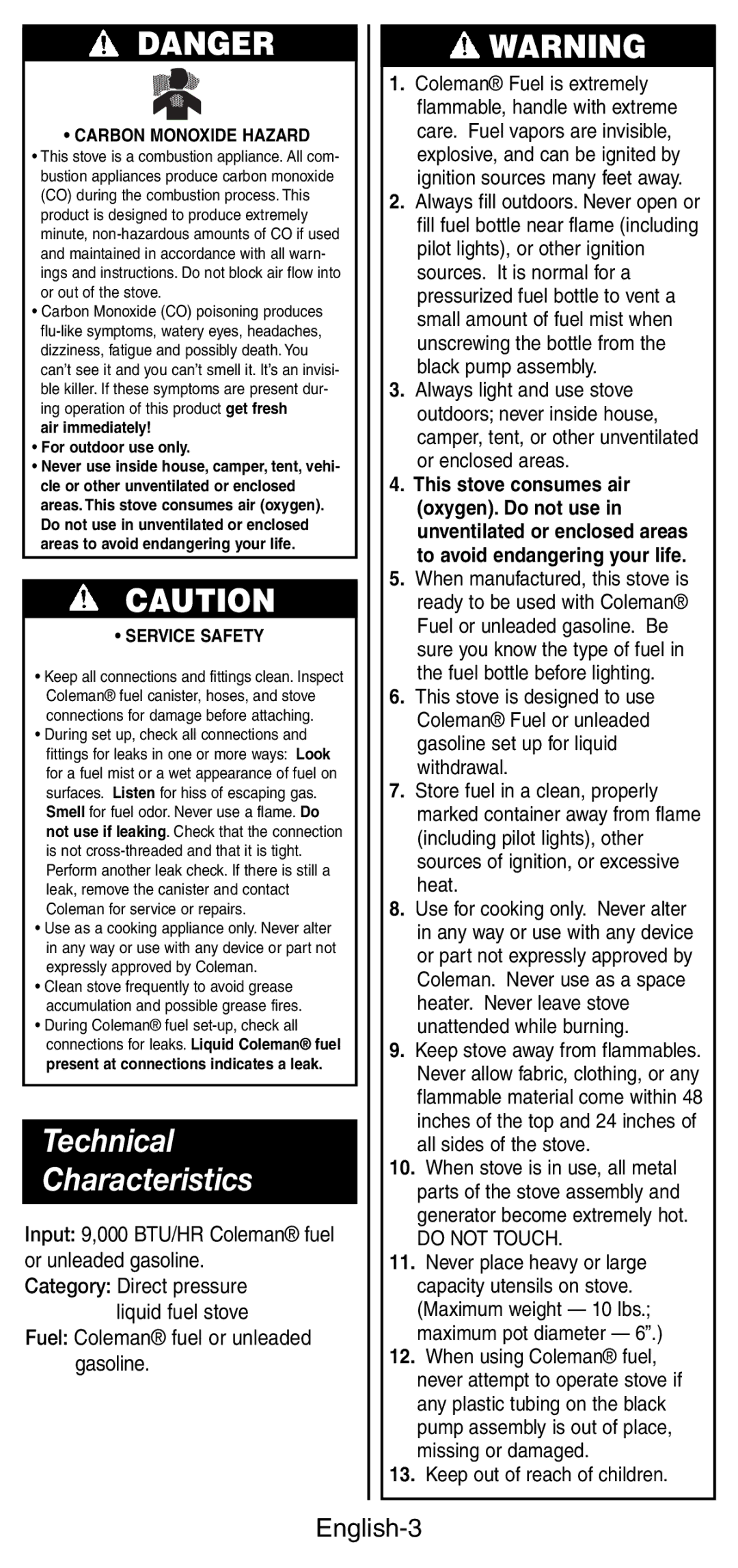9760 specifications
The Coleman 9760 is a versatile and practical camping stove that has gained popularity among outdoor enthusiasts for its reliability and performance. Designed for easy use, this stove features a compact and portable design, making it an ideal choice for camping, tailgating, or backyard cookouts. With its robust construction, the Coleman 9760 is built to endure the elements while providing efficient cooking capabilities.One of the standout features of the Coleman 9760 is its dual-burner system, which allows users to prepare multiple dishes simultaneously. Each burner has a high heat output, delivering up to 10,000 BTUs of cooking power, ensuring that meals are prepared quickly and efficiently. The adjustable burners enable users to control the flame precisely, providing flexibility whether you need a high boil for pasta or a gentle simmer for sauces.
The stove is designed with a durable and rust-resistant cooktop, ensuring longevity even with regular use in various weather conditions. The removable chrome-plated grate provides a sturdy surface for pots and pans while being easy to clean after cooking. Additionally, the stove incorporates wind-blocking panels that help maintain consistent heat, protecting the flames from breezy conditions and making outdoor cooking more efficient.
In terms of fuel efficiency, the Coleman 9760 utilizes propane canisters, which are widely available and easy to transport. The stove features a matchless ignition system, allowing users to ignite the burners with a simple push of a button, eliminating the hassle of traditional matches or lighters. The built-in safety features, including a pressure regulator, further enhance the safety of using this stove, allowing campers to cook with peace of mind.
Portability is another hallmark of the Coleman 9760, as it is lightweight and can easily fit in the trunk of a car or be carried in a backpack. When set up, the stove provides a stable cooking surface while folding down compactly for transportation. Overall, the Coleman 9760 combines functionality with durability, making it a must-have for anyone looking to enhance their outdoor cooking experience. Whether you are an experienced camper or just starting, this stove provides an excellent blend of technology, versatility, and ease of use.

